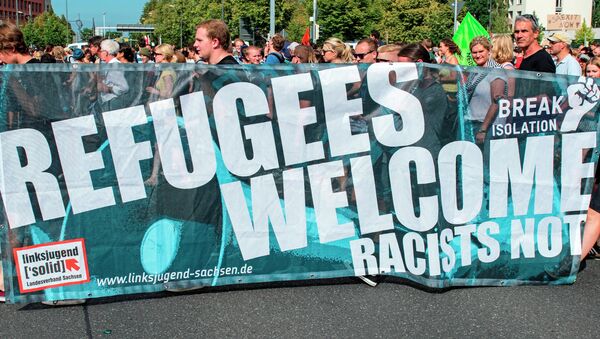German Foreign Minister Heiko Maas has taken to the Twitter to remind everyone that most of the world's countries signed the Geneva Refugee Convention in 1951 and must still uphold it as a "beacon of humanity," recalling the international conference in French Evian, which took place 80 years ago and failed to provide German Jews a way out of the Nazi-ruled state.
Vor 80 Jahren konnte sich die Weltgemeinschaft in Evian nicht auf die Aufnahme jüdischer Flüchtlinge einigen. Die Genfer Flüchtlingskonvention war die Antwort auf dieses Versagen und ist verpflichtender Maßstab unserer Menschlichkeit – bis heute. https://t.co/AdPxlt2iJs pic.twitter.com/8g0U79PkzH
— Heiko Maas (@HeikoMaas) July 15, 2018
According to articles 31-33 of the 1951 Geneva Refugee Convention, countries cannot punish asylum seekers that illegally cross borders, expel or return them to their country of origin. The convention was signed after many Jews had failed to leave Germany, with most countries having rejected to issue entry visas to them, resulting in them becoming victims in the holocaust carried out by the Nazis.
Some of the most famous victims of the pre-war period's restrictive immigration were Anne Frank's family who, as researchers have recently discovered, had applied multiple times for asylum in the US, but were never granted it due to bureaucracy and annual visa quotas. In the end, her family gave up hope of receiving the asylum and tried to hide in Netherlands, but were ultimately caught by the Nazis and sent to Auschwitz. By the end of the war, only Anne Frank's father had survived the genocide.
READ MORE: Anne Frank's Family Failed to Escape From Nazis to US Due to Its Bureaucracy
The Evian Conference in 1938 gathered 32 countries in a bid to find a solution to the influx of Jewish immigrants, but ended without any significant success or binding agreements, essentially leaving the situation unresolved. Nazi Germany later gloated over the conference's results, pointing out that the countries that had criticized Germany's policies towards the Jews had also denied them asylum.




